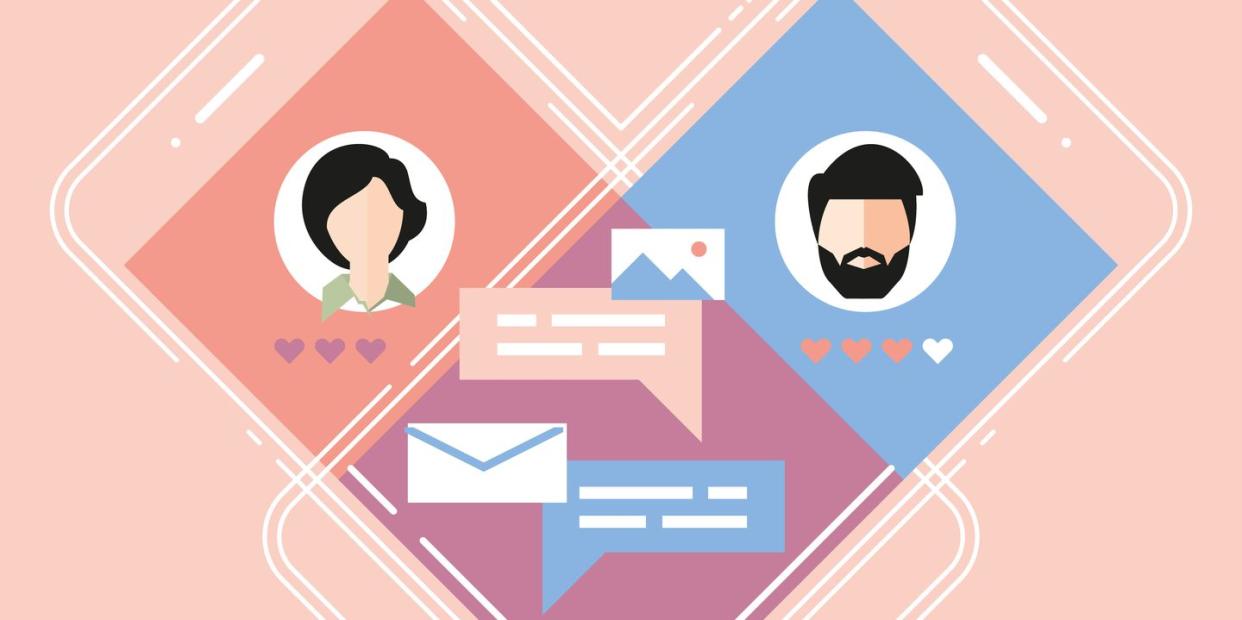A Harvard Geneticist Wants to Build a Dating App That Sure Sounds Like Eugenics

In a 60 Minutes interview, Harvard geneticist George Church said he'd like to start a dating app that aligns lovers based on their genetic compatibility.
When two users have a low likelihood of passing on diseases to possible children, they'll be designated as a match.
This sort of dating app sounds a bit like eugenics—and, indeed, critics are speaking out against Church.
George Church, a Harvard geneticist renowned for his work on reversing aging, is creating an app that could eliminate human disease for good by matching potential partners based on their DNA compatibility. The app will pair people who have the least amount of risk of creating offspring with illnesses or disabilities.
During a recent 60 Minutes broadcast, correspondent Scott Pelley peppered Church with questions about his lab at Harvard, where he and about 100 researchers are attempting to grow whole organs from Church's own cells. The goal, as the geneticist sees it, is to grow organs that will no longer pose a threat of rejection.
This process of gene editing—or changing cells from their original state back into the unspecified stem cells you may see in a fetal tissue that have not yet become a specific organ—is relatively safe territory compared to some of Church's other ideas, like encouraging selective breeding through a dating app.
Church's proposed app will pair potential star-crossed lovers based on their genome sequence, rather than, say, their love of Stephen King novels or affinity for chess. The idea is that if two people will likely produce offspring with genetic mutations, they're not a good match.
"You wouldn't find out who you're not compatible with," Church told 60 Minutes. "You'll just find out who you are compatible with."
This app borrows some ideas you may have encountered in high school biology, including how dominant genes will be expressed before recessive genes are. That's why mutations, or errors in your DNA's source code, are usually uncommon. While many diseases like sickle cell anemia and cystic fibrosis are genetic, some aspects of our physical appearance, like having red hair, are also the result of mutations.
“You’re suggesting that if everyone has their genome sequenced and the correct matches are made, that all of these diseases could be eliminated?” Pelly asked Church. To which the geneticist replied, “Right. It’s 7,000 diseases. It’s about 5 percent of the population. It’s about a trillion dollars a year, worldwide.”
Indeed, the idea of eliminating all diseases might sound like the work of a sci-fi flick, but upon further inspection, it's a bit too close for comfort to Adolf Hitler's own attempts to create a supposedly superior Aryan race. Church's dating app promotes the idea of selective breeding.
Eugenics, which literally translates to "good birth" in Latin, is the science of promoting desirable qualities in the human race, usually through some kind of controlled breeding. This can take many forms, from choosing to adopt children due to a family history of psychosis, or authoritarian governments setting up forced sterilization procedures for anyone deemed undesirable by society.
That's why critics are already speaking out against Church's dating app idea, even though it doesn't even exist yet.
“I thought we realized after World War II that we weren’t going to be doing that,” Fordham adjunct ethics professor Elizabeth Yuko, who studies bioethics, told The Daily Beast.
She went on to emphasize that undesirable traits are subjective and that this whole selective breeding thing could quickly get messy.
“It’s not clear what conditions or diseases will be screened for,” Yuko said. “Who makes that list? What’s undesirable? That’s classifying people into acceptable humans and others.”
You Might Also Like

